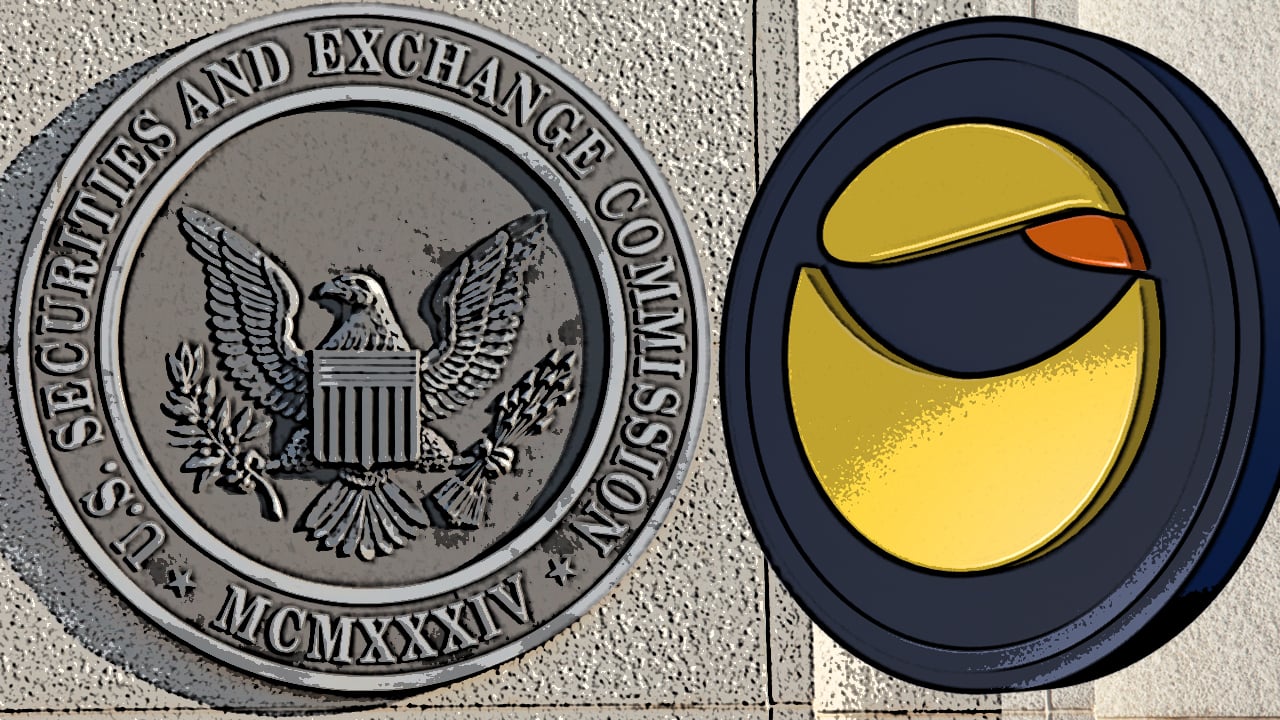 Attorneys defending the co-founder of Terraform Labs, Do Hyeong Kwon, also known as Do Kwon, have presented their argument that says the U.S. Securities and Exchange Commission (SEC) has no jurisdiction in the matter. The legal team asserts that U.S. law precludes regulators “from using federal securities law to assert jurisdiction over the digital assets […]
Attorneys defending the co-founder of Terraform Labs, Do Hyeong Kwon, also known as Do Kwon, have presented their argument that says the U.S. Securities and Exchange Commission (SEC) has no jurisdiction in the matter. The legal team asserts that U.S. law precludes regulators “from using federal securities law to assert jurisdiction over the digital assets […] The U.S. Securities and Exchange Commission (SEC) has charged Terraform Labs and its CEO, Do Hyeong Kwon, with fraud, alleging that Kwon and his company orchestrated “a multibillion-dollar crypto-asset securities fraud.” The securities watchdog insists that Kwon raised billions from investors by creating an “interconnected suite of crypto-asset securities,” many of which were involved in […]
The U.S. Securities and Exchange Commission (SEC) has charged Terraform Labs and its CEO, Do Hyeong Kwon, with fraud, alleging that Kwon and his company orchestrated “a multibillion-dollar crypto-asset securities fraud.” The securities watchdog insists that Kwon raised billions from investors by creating an “interconnected suite of crypto-asset securities,” many of which were involved in […]
The governments of the United States and South Korea have agreed to investigate the collapse of former top-10 crypto project Terra (LUNA) for potential financial misdoings. According to a new report by local Korean media outlet Yonhap News, the country’s justice minister Han Dang-hoon met with US prosecutors in New York this week to discuss […]
The post USA and Korea Join Forces To Investigate Terra (LUNA) Collapse for Potential Financial Crimes: Report appeared first on The Daily Hodl.

An error on the pricing oracle software for Terra Classic validators opened the door for an exploiter to drain four synthetic asset pools from the Mirror Protocol.
A mismatch in the reported price of underlying assets on synthetic assets DeFi platform Mirror Protocol has caused an ongoing exploit that has the potential to drain all of its funds.
The exploit was observed on May 29 by governance participant ‘Mirroruser’ on the protocol’s forum. As of the time of writing, the mBTC, mDOT, mETH, and mGLXY synthetic asset pools on the protocol have lost almost all of their assets valued at over $2 million.
Mirror allows trading of synthetic assets, such as stocks and cryptocurrency on the Terra and Terra Classic layer-1 blockchains, BNB Chain (BNB), and Ethereum (ETH).
A pricing error for Luna Classic (LUNC) made the exploit possible. The remaining validators on Terra Classic reported that the price of LUNC ($0.000122) was the same as the newly launched LUNA ($9.32) even though their real market prices vary wildly according to CoinGecko.
Chainlink community ambassador ‘ChainLinkGod’ explained on May 31 that the “Terra Classic validators were running an outdated version of the oracle software.”
.@mirror_protocol has just been exploited again due to Terra Classic validators reporting the price of the new Terra 2.0 $LUNA coin (~$9.80) instead of the original Terra Classic $LUNC coin (~$0.0001)
— ChainLinkGod.eth (@ChainLinkGod) May 30, 2022
This is a massive operations failurehttps://t.co/hO0M0UFBYq https://t.co/ygbr3ij4iS pic.twitter.com/PO0huxX8oQ
Venus Protocol and Blizz Finance each suffered from a similar exploit in May when price oracle Chainlink’s reported LUNA price remained at $0.10 while the market price ran far below that. Blizz Finance was entirely drained while Venus lost $11.2 million.
Terra community whistleblower on Twitter, pseudonymous ‘FatMan’, warned that the Mirror exploit will affect the other ‘m’ asset pools by about 8:00am UTC on May 31. However, the account also claims that most of the pools can be saved if the developers intervene to fix the bug.
By 12:55am UTC, it appeared that the pricing error had been fixed for LUNC, as the price being verified by the oracle has returned to its real market value.
This is the second time Mirror has suffered from a major vulnerability. The previous bug in Mirror’s code was exploited “hundreds of times” since 2021 according to FatMan in a May 27 tweet. The first exploit allowed a user to unlock other users’ collateral on the protocol and pull it out themselves. In all, the first exploiter got away with “well over $30 million” and was not noticed until May 2022, he added.
Related: Korean watchdog begins risk assessment of crypto as Terra 2.0 passes vote
On May 28, the Terra ecosystem was relaunched when Terra 2.0 went online as per founder Do Kwon’s plans. Terra 2.0 is a fork of the now-named Terra Classic blockchain. LUNA tokens are being airdropped to investors who held the previous version of LUNA and the TerraUSD (UST) stablecoin during the catastrophic collapse of the Terra ecosystem earlier this month.
Mirror Protocol (MIR) tokens are currently down 2% in the past 24 hours and are trading at $0.31 according to CoinGecko.
 It’s been two days since the Terra development team launched the new Phoenix-1 blockchain with the network’s native token LUNA. While the token dropped significantly in value during the first day of trading, the new LUNA has jumped 8.8% in value during the last 24 hours. Amid the token’s 24-hour rise, controversy continues to plague […]
It’s been two days since the Terra development team launched the new Phoenix-1 blockchain with the network’s native token LUNA. While the token dropped significantly in value during the first day of trading, the new LUNA has jumped 8.8% in value during the last 24 hours. Amid the token’s 24-hour rise, controversy continues to plague […]
ANC price risks becoming overheated, however, after a major rally.
Anchor Protocol (ANC), the decentralized finance (DeFi) platform built on the Terra blockchain protocol, rebounded nearly 300% in over a month after bottoming out near $1.26.
ANC price went as high as $4.97 on the Bitfinex cryptocurrency exchange on March 3, 2022, breaking above the previous record peak near $4.50 established on Dec. 3 last year.
In doing so, the Anchor Protocol also erased all the losses it had incurred during what some called the "crypto winter" that started in Q4/2021 — against the prospects of the Federal Reserve's aggressive rate hikes.

ANC is the governance token of the Anchor Protocol's decentralized money market that offers UST (Terra's dollar-pegged stablecoin) depositors a stable 20% annual percentage yield (APY). In addition, it enables borrowers to collateralize UST loans using bonded LUNA (bLUNA).
Funded. pic.twitter.com/NLvnSa0bBu
— Do Kwon (@stablekwon) February 18, 2022
As a result, the Anchor Protocol creates demand for UST, which, in turn, promises to remove more LUNA tokens out of circulation. That is due to Terra's economic model, which incentivizes users to mint UST when its value goes above $1 by burning LUNA supply.
ANC's upside retracement in January 2022 started primarily in the wake of similar price recoveries across the crypto market but picked up momentum at the end of February while mirroring bullish moves in the Terra (LUNA) market.
Notably, the correlation coefficient between ANC and LUNA rose from zero on Feb. 23 to 0.91 on March 3, meaning Anchor Protocol's price has been more or less mirroring the moves of the Terra blockchain's native token.

As Cointelegraph covered earlier, the upside boom in the Terra market emerged after Luna Foundation Guard (LFG) — a nonprofit organization supporting its blockchain ecosystem, raised $1 billion in a LUNA token sale round to create a so-called "UST Forex Reserve."
In response, LUNA's price rallied by nearly 90%. ANC also surged under LUNA's impression, mostly due to its involvement in the Terra ecosystem. The price of MIR, the native token of another Terra-based project, Mirror Protocol, was also up 30% on March 3 when measured from its Feb. 24 low of circa $1.
The latest period of buying in the Anchor Protocol market has made ANC excessively valued, according to a key momentum indicator.
The readings on the ANC's daily relative strength index (RSI) came out to be near 80, which makes the token technically "overbought." Traders typically find opening new upside positions extremely risky when the RSI crosses above 70. Conversely, they prefer to sell the asset to secure interim profits.
Related: Rune’s upcoming mainnet launch and Terra (LUNA) integration set off a 74% rally

If a selloff ensues, the Anchor Protocol's next support level appears near $4, coinciding with the 1.0 Fib line of the Fibonacci retracement graph made from $1-swing high to $1.26-swing low. Meanwhile, an additional decline could bring ANC's 20-day exponential moving average (20-day EMA; the green wave) near $3.14 in focus as the next downside target.
More downside could bring ANC's 20-day exponential moving average (20-day EMA; the green wave) near $3.14 in focus as the next downside target.
Conversely, further upside could have ANC bulls target $5.50 as their next resistance level.
The views and opinions expressed here are solely those of the author and do not necessarily reflect the views of Cointelegraph.com. Every investment and trading move involves risk, you should conduct your own research when making a decision.

The massive move upside had MIR form a golden cross
Mirror Protocol, a decentralized finance (DeFi) protocol built on the Terra blockchain, was hit by one of the biggest collapses in financial history this week after Vladimir Putin ordered military strikes against Ukraine.
Mirror Protocol's native token, MIR, dropped to $0.993 on Feb. 24, its worst level to date amid a selloff across the broader crypto market. But a sharp rebound ensued, taking the price to as high as $1.41 two days later, up more than 40% when measured from MIR's record low.

Just like the drop, MIR's upside retracement came in the wake of similar recoveries elsewhere in the crypto market. But interestingly, MIR/USD returns appeared larger than some of the highly valued digital assets, including Bitcoin (BTC) and Ether (ETH).
Notably, Bitcoin rallied up to 17% after bottoming out locally on Feb. 24, below $34,500. In contrast, Ether's gains in the same period came out to be a little over 25% after bouncing from $2,300.
On the other hand, Terra (LUNA), whose protocol hosts the Mirror Protocol's synthetic assets platform, rebounded by more than 50% in the same period.
Interestingly, another Terra blockchain-backed token, Anchor Protocol (ANC), jumped more than 45% from its Feb. 24 low of $2.64, reaching its best level to date just shy of $4.
The recent upside boom in the Mirror Protocol market also resulted in the formation of a so-called golden cross pattern.
In detail, MIR's 20-4H exponential moving average (20-4H EMA; the green wave) surged above its 50-4H EMA (the red wave), a move that typically follows up with a short-term uptrend, as per the Mirror Protocol's recent market history.
Nonetheless, the readings on the MIR's four-hour relative strength index (RSI) — which went above 70 during the weekend — alerted about its "overbought" status. That has coincided with a correction in the Mirror Protocol market, with MIR now down over 10.5% from its retracement high near $1.41.

The decline has had MIR break below $1.36, one of its previous support levels that also confluences with the 61.8 Fib line of a Fibonacci Retracement Graph made from $1.58-swing high to $1.00-swing low.
The price now eyes additional drops toward the next support levels near the 0.5 Fib line around $1.29, followed by the 0.236 Fib line at $1.13.
Related: Cointelegraph Consulting: A look at Terra’s ecosystem
Conversely, if MIR holds above its 20-4H and 50-4H EMAs, its likelihood of retesting $1.58 might increase. Its bullish outlook also depends on how the ongoing geopolitical conflict in Eastern Europe plays out, and its impact on Bitcoin.

Notably, the correlation coefficient between Bitcoin and Mirror Protocol sits near 0.75 above zero, meaning MIR price is more or less mirroring the moves of the top digital asset for the time being.
The views and opinions expressed here are solely those of the author and do not necessarily reflect the views of Cointelegraph.com. Every investment and trading move involves risk, you should conduct your own research when making a decision.
 A recent court filing stemming from the Southern District of New York shows that a U.S. district judge has ordered the crypto startup Terraform Labs to comply with the Securities and Exchange Commission’s (SEC) subpoenas. During the second week of November 2021, the U.S. regulator filed a subpoena enforcement action against Terraform Labs and the […]
A recent court filing stemming from the Southern District of New York shows that a U.S. district judge has ordered the crypto startup Terraform Labs to comply with the Securities and Exchange Commission’s (SEC) subpoenas. During the second week of November 2021, the U.S. regulator filed a subpoena enforcement action against Terraform Labs and the […]